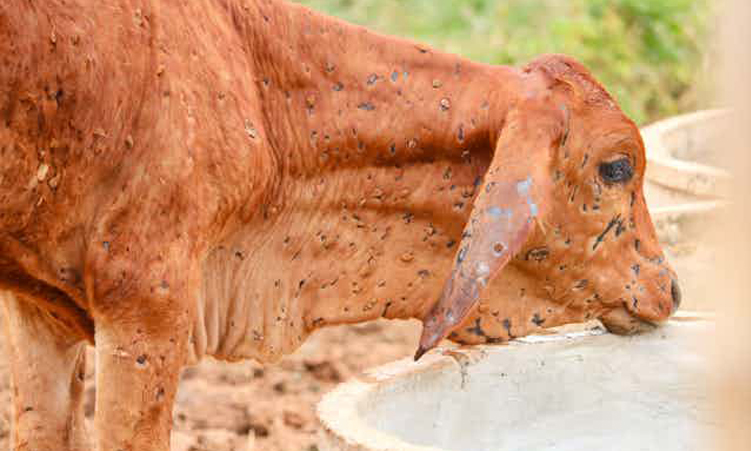FARM strangler Hendrik Swarts, who last week admitted that he murdered a 65-year-old woman during a robbery on a farm in the Gobabis district, has a 40-year jail term ahead of him after his sentencing in the High Court in Windhoek on Friday.
For murdering Anna Jacoba Reed at the farm Arib between Gobabis and Leonardville during the night of September 21 to 22 2006, the 35-year-old Swarts has now received a 30-year prison term from Acting Judge Christie Liebenberg. On a charge of robbery with aggravating circumstances, to which Swarts also pleaded guilty when he admitted guilt to a count of murder on Tuesday, Acting Judge Liebenberg sentenced Swarts to 15 years’ imprisonment, of which five years are to be served concurrently with the sentence on the murder charge.Swarts was further sentenced to a one-year prison term, which is to be served concurrently with the sentence on the robbery charge, on the third charge that Swarts admitted – defeating or obstructing the course of justice.In a plea explanation from Swarts that defence lawyer Boris Isaacks handed to the court on Tuesday, Swarts claimed he went to farm Arib on September 21 2006 to look for a job.Swarts, who according to Isaacks is unmarried and has a 14-year-old child, had previously been employed as a farmworker, but had been jobless for some eight months at the time the crimes were committed.Swarts claimed that when he arrived at Reed’s house he changed his mind and decided to break into the house to steal food, as he knew that Reed ran a small shop from her house.He saw that the house was dark, and found an open window through which he climbed into the house, Swarts related in the plea explanation.Inside, he accidentally knocked over a waste bin, Swarts said.He related that he was still in the house when he saw Reed entering the kitchen, probably to investigate the noise from the bin that had been knocked over.Reed, who had a flashlight with her, saw him, and then turned and started running away, Swarts stated.He added that he heard her bumping into furniture in the kitchen, and claimed that he then panicked, followed her to where she had fallen, and then strangled her with a scarf that he had with him.Swarts claimed that his intention was to “render her incapacitated” so that he could take the food that he wanted to steal.”I did not want to kill her but I foresaw that my action could lead to her death and mindful of this I continue (sic) to strangle her,” he stated.Having killed Reed, Swarts left her house with a moneybox containing N$300, a flashlight, binoculars, food such as sugar, bread flour, coffee and sweets, toiletries and a yellow bag, Swarts further admitted.While Swarts stated that he did not intend to kill Reed, he actually admitted that he had an indirect or constructive intention to kill her, Acting Judge Liebenberg noted during the sentencing on Friday.Swarts never testified to personally state that he had remorse over the offences he admitted, Acting Judge Liebenberg also noted.Isaacks had told the court that Swarts had expressed remorse over the incident – but in the absence of anything having been said by Swarts himself to the court, this expression of remorse could not be regarded as convincing or demonstrable, Acting Judge Liebenberg said.Acting Judge Liebenberg questioned why anyone would have arrived at a farm at night to look for employment – only to then change his mind and decide to instead break into a house where he must have realised or foreseen he could encounter the person living in the house.He does not believe that Swarts had gone to the farm to look for employment with Reed, Acting Judge Liebenberg said.Swarts had other motives, which soon became clear when he decided to break into Reed’s house, he commented.Acting Judge Liebenberg also questioned Swarts’s claim that he had panicked when Reed saw him in the house and tried to run away from him.Swarts was still in Reed’s house at that stage because he had chosen not to run, the Acting Judge said: “There was ample time for him to find his way back outside once he realised (Reed) or someone else was at home and on the way.”When Reed turned and tried to run away from him, she was posing no threat to him, Acting Judge Liebenberg told Swarts.”The opportunity to leave was there all along.Instead, he followed (Reed) and when he found her on the ground, he started strangling her,” he recounted the events as stated by Swarts.”Here an elderly woman was surprised at night in the security of her own house, desolate and alone, with no-one to come to her assistance.She tried to run away but failed, and thereafter (Swarts) started strangling her.”The fact that no weapons like a knife or a firearm were used by Swarts does not make the murder less brutal, as had been suggested by Isaacks on Tuesday, Acting Judge Liebenberg added.”I regard death by asphyxia to be one of the cruellest ways of dying, because death does not come instantly,” he said.Reed had died an unworthy death, and the fact that Swarts stated that he did not have a direct intention to murder her, could not be taken as being a mitigating factor in his favour, Acting Judge Liebenberg said.State advocate Ruben Shileka conducted the prosecution against Swarts.On a charge of robbery with aggravating circumstances, to which Swarts also pleaded guilty when he admitted guilt to a count of murder on Tuesday, Acting Judge Liebenberg sentenced Swarts to 15 years’ imprisonment, of which five years are to be served concurrently with the sentence on the murder charge.Swarts was further sentenced to a one-year prison term, which is to be served concurrently with the sentence on the robbery charge, on the third charge that Swarts admitted – defeating or obstructing the course of justice.In a plea explanation from Swarts that defence lawyer Boris Isaacks handed to the court on Tuesday, Swarts claimed he went to farm Arib on September 21 2006 to look for a job.Swarts, who according to Isaacks is unmarried and has a 14-year-old child, had previously been employed as a farmworker, but had been jobless for some eight months at the time the crimes were committed.Swarts claimed that when he arrived at Reed’s house he changed his mind and decided to break into the house to steal food, as he knew that Reed ran a small shop from her house.He saw that the house was dark, and found an open window through which he climbed into the house, Swarts related in the plea explanation.Inside, he accidentally knocked over a waste bin, Swarts said.He related that he was still in the house when he saw Reed entering the kitchen, probably to investigate the noise from the bin that had been knocked over.Reed, who had a flashlight with her, saw him, and then turned and started running away, Swarts stated.He added that he heard her bumping into furniture in the kitchen, and claimed that he then panicked, followed her to where she had fallen, and then strangled her with a scarf that he had with him.Swarts claimed that his intention was to “render her incapacitated” so that he could take the food that he wanted to steal.”I did not want to kill her but I foresaw that my action could lead to her death and mindful of this I continue (sic) to strangle her,” he stated.Having killed Reed, Swarts left her house with a moneybox containing N$300, a flashlight, binoculars, food such as sugar, bread flour, coffee and sweets, toiletries and a yellow bag, Swarts further admitted.While Swarts stated that he did not intend to kill Reed, he actually admitted that he had an indirect or constructive intention to kill her, Acting Judge Liebenberg noted during the sentencing on Friday.Swarts never testified to personally state that he had remorse over the offences he admitted, Acting Judge Liebenberg also noted.Isaacks had told the court that Swarts had expressed remorse over the incident – but in the absence of anything having been said by Swarts himself to the court, this expression of remorse could not be regarded as convincing or demonstrable, Acting Judge Liebenberg said.Acting Judge Liebenberg questioned why anyone would have arrived at a farm at night to look fo
r employment – only to then change his mind and decide to instead break into a house where he must have realised or foreseen he could encounter the person living in the house.He does not believe that Swarts had gone to the farm to look for employment with Reed, Acting Judge Liebenberg said.Swarts had other motives, which soon became clear when he decided to break into Reed’s house, he commented.Acting Judge Liebenberg also questioned Swarts’s claim that he had panicked when Reed saw him in the house and tried to run away from him.Swarts was still in Reed’s house at that stage because he had chosen not to run, the Acting Judge said: “There was ample time for him to find his way back outside once he realised (Reed) or someone else was at home and on the way.”When Reed turned and tried to run away from him, she was posing no threat to him, Acting Judge Liebenberg told Swarts.”The opportunity to leave was there all along.Instead, he followed (Reed) and when he found her on the ground, he started strangling her,” he recounted the events as stated by Swarts.”Here an elderly woman was surprised at night in the security of her own house, desolate and alone, with no-one to come to her assistance.She tried to run away but failed, and thereafter (Swarts) started strangling her.”The fact that no weapons like a knife or a firearm were used by Swarts does not make the murder less brutal, as had been suggested by Isaacks on Tuesday, Acting Judge Liebenberg added.”I regard death by asphyxia to be one of the cruellest ways of dying, because death does not come instantly,” he said.Reed had died an unworthy death, and the fact that Swarts stated that he did not have a direct intention to murder her, could not be taken as being a mitigating factor in his favour, Acting Judge Liebenberg said.State advocate Ruben Shileka conducted the prosecution against Swarts.
Stay informed with The Namibian – your source for credible journalism. Get in-depth reporting and opinions for
only N$85 a month. Invest in journalism, invest in democracy –
Subscribe Now!










